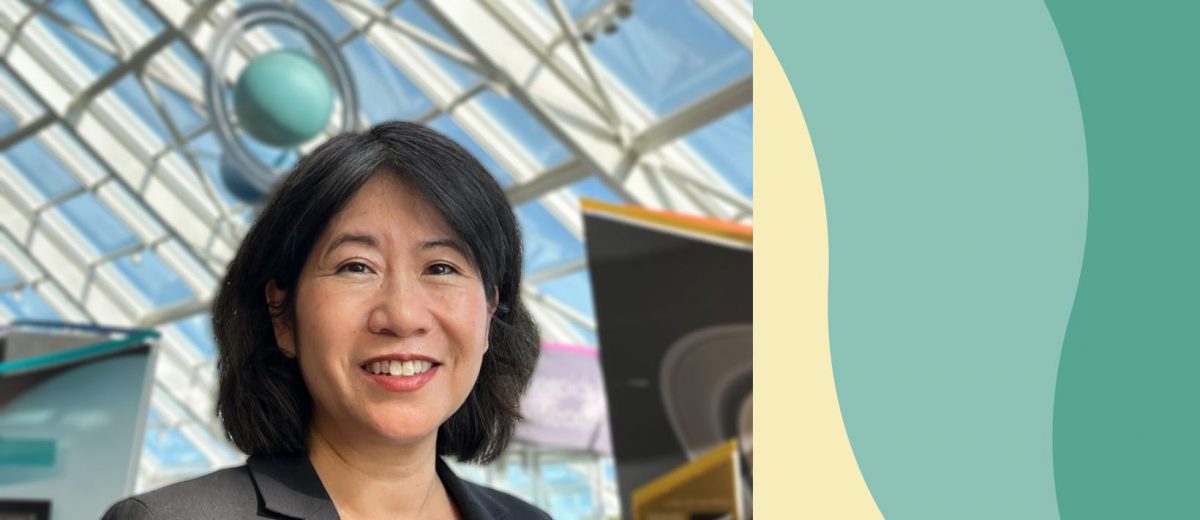March 25, 2023
Audris Wong, MBA, is Chief Financial Officer of the Adler Planetarium and has been a member of the CDRP External Advisory Panel since 2016. She has a background in consulting, with expertise in healthcare, nonprofit management, technology, and education. Wong has worked with educational and medical organizations, startups, and Fortune 100 corporations to implement strategies for operations, community building, communications, and more. Her writing has been published in Harvard Business Review, CIO magazine, Aspen Strategy Institute, strategy+business, and Financial Times.
Perhaps stereotypically, my parents wanted me to be a doctor. I actually did have a deep interest in medicine, but I was in my rebellious stage, so I went to Harvard Business School instead! I believed that if I could bring better management, technology, and insightful thinking that already exist in other industries to healthcare, I could still make a difference but from the business side. At the time I was in school, it was like $300 billion of wasted effort, a system where people were not getting better, and hospitals were simultaneously bloated and stretched for resources.
I spent 20 years as a strategy consultant, primarily in healthcare. One of my first projects was working with Michael Roizen at the University of Chicago to look at a very early prototype of a medical record decision support system. How do we use decision support systems to make the patient a better consumer of healthcare to make them a primary agent in their care, as opposed to being on the outside looking in on the decisions being made about their health? That question has persisted throughout my time as a consultant–whether to physicians, to hospitals, to payers.
When I met [CDRP director] Elbert [Huang], I had just written an article for Harvard Business review about how healthcare consumerism was going to change the doctor-patient relationship. Now that we have medical records and machine learning, how can we bring expertise into the patient’s home and into the community? Patients finally have the tools to take care of themselves, particularly in the case of chronic disease. That’s where I saw the new frontier: if we were ever going to have sustainable gains in healthcare outcomes, patients needed to be the empowered agents of their care but with the guidance, expertise, and collaboration with medical professionals.
The CDRP is unique in creating a really fruitful research environment. At the CDRP, you can get empirical findings in Medicare data, validate them through research modeling, then pilot them in the field with the Practice-Based Research Network. It’s an extraordinary engine for research. You can tell by the breadth of projects and talent of the team that there is something incredible in the how of what they are doing, not just the what.
Although I’ve left healthcare consulting, my work as the CFO of the Adler Planetarium is not that much of a departure. We’re not here just to teach people about astronomy. We want to unlock people’s inner scientist. People can study the sky themselves—the sky is accessible to all of us. But we need a guide and encouragement. Fundamentally that is the same thing that the CDRP is doing in its research and policy work–trying to introduce the right health management tools back to the individual and the community. Eventually we will dismantle the barriers to people being their own agents of change.

